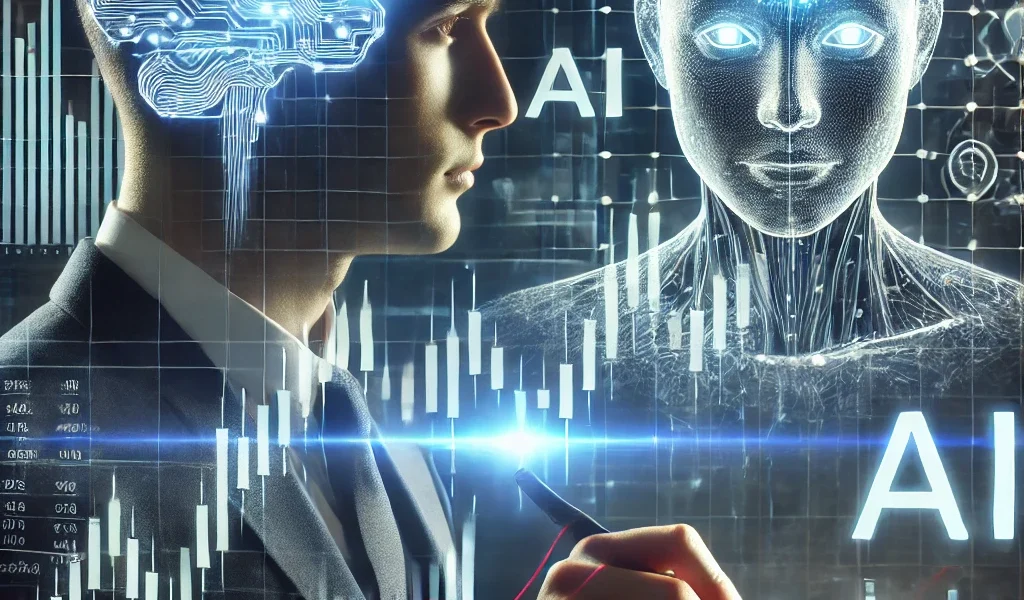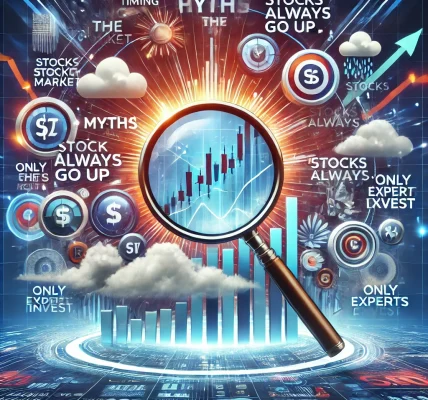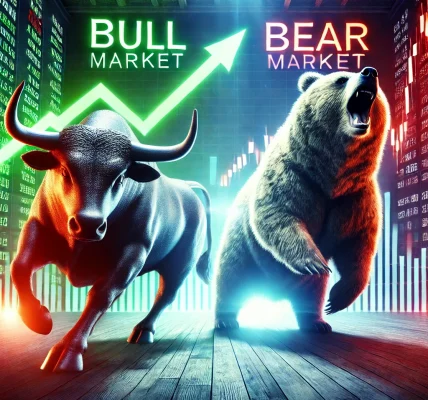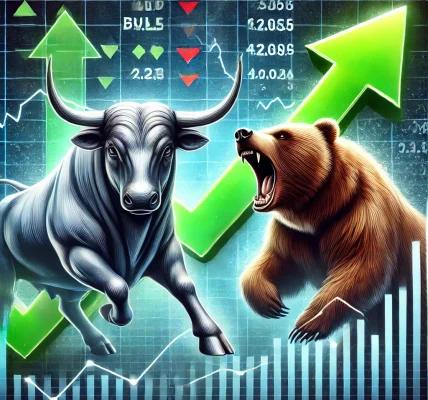Introduction
Artificial Intelligence (AI) has revolutionized multiple industries, and the financial sector is no exception. With AI-driven algorithms, machine learning models, and big data analytics, investors now have access to advanced tools that claim to predict stock market movements with impressive accuracy. However, how much of this is genuine innovation, and how much is mere hype?
In this blog, we’ll explore the real impact of AI on stock market predictions, analyze the capabilities and limitations of AI-driven trading, and differentiate between fact and fiction in AI’s role within financial markets.
1. How AI is Used in Stock Market Predictions
AI in the stock market primarily operates in data processing, predictive analytics, and automated trading. Below are some of its most common applications:
Algorithmic Trading (Algo-Trading)
- AI-driven trading bots execute high-speed trades based on pre-programmed criteria.
- Hedge funds and financial institutions use AI to identify patterns in stock price movements.
- AI-powered quantitative trading strategies help optimize portfolio management.
Sentiment Analysis
- AI scans news articles, social media posts, and financial reports to gauge market sentiment.
- Sentiment analysis tools use Natural Language Processing (NLP) to predict potential stock price movements based on public perception.
Predictive Analytics and Market Forecasting
- Machine learning models analyze historical price trends, economic indicators, and financial statements.
- AI-driven stock market forecasts use pattern recognition to make probability-based predictions.
- Some AI models incorporate macroeconomic factors like inflation, interest rates, and global events to enhance forecasting accuracy.
2. The Hype: What AI Promises But Might Not Deliver
While AI has proven to be a powerful tool in stock market analysis, there are limitations and misconceptions about its effectiveness.
Myth #1: AI Can Accurately Predict Stock Prices Every Time
- Stock market movements are influenced by unpredictable events such as political instability, pandemics, and economic crises.
- Even the most advanced AI models cannot fully eliminate uncertainty.
Myth #2: AI Removes the Need for Human Intervention
- AI is only as good as the data it processes; financial markets require human judgment to interpret complex macroeconomic trends.
- Investors should use AI as a decision-support tool, not as a foolproof trading system.
Myth #3: AI Trading is Risk-Free
- Algorithmic trading can lead to flash crashes and market instability if not properly monitored.
- AI systems are susceptible to biases in data, potentially leading to incorrect investment decisions.
3. The Reality: What AI Actually Delivers in Stock Market Analysis
AI’s Strengths
✅ Speed and Efficiency – AI can analyze vast amounts of market data in real time, far faster than human analysts. ✅ Pattern Recognition – Machine learning models excel at identifying historical trends and trading signals. ✅ Automated Trading – AI-powered systems can execute trades at optimal prices and reduce human errors. ✅ Risk Management – AI helps in portfolio diversification, hedging strategies, and fraud detection.
AI’s Limitations
❌ Data Dependency – AI needs high-quality, clean, and diverse datasets to make accurate predictions. ❌ Market Volatility – AI models struggle with black swan events (e.g., global recessions, wars, or natural disasters). ❌ Overfitting Issues – AI models can sometimes overanalyze past trends and fail to adapt to new market conditions.
4. Case Studies: AI in Action in Stock Market Predictions
Successful Use of AI in Trading
📈 Renaissance Technologies
- This hedge fund uses AI and quantitative models to make data-driven trading decisions.
- Their AI-based strategies have delivered consistent market-beating returns.
📉 High-Frequency Trading (HFT) Firms
- AI is widely used in HFT to execute thousands of trades per second based on micro-market movements.
- Firms like Citadel Securities and Virtu Financial leverage AI for liquidity provision and market-making.
AI Failures in Stock Market Predictions
❌ 2010 Flash Crash
- AI-driven HFT algorithms contributed to a sudden 1,000-point drop in the Dow Jones Index within minutes.
- The event highlighted the risks of AI trading without regulatory safeguards.
❌ COVID-19 Market Crash (2020)
- AI models failed to predict the rapid market crash caused by the pandemic, exposing the limitations of historical data-based forecasting.
5. Should You Rely on AI for Stock Market Investments?
While AI is a valuable tool for investors, it should be used in combination with traditional financial analysis and risk management strategies. Here’s how to make the most of AI-driven stock predictions:
Best Practices for Using AI in Investing
✔ Combine AI with Fundamental & Technical Analysis – AI works best when paired with human expertise. ✔ Use AI for Risk Management – AI-powered tools can monitor portfolio risks and diversify assets effectively. ✔ Monitor AI-Based Trading Systems – Automated trading should be constantly reviewed to prevent algorithmic errors. ✔ Stay Informed on Market Trends – AI relies on historical data, but investors must stay updated on real-world events.
Conclusion
AI has significantly transformed stock market analysis, offering speed, efficiency, and data-driven insights. However, it is not a magic solution for predicting stock prices with 100% accuracy. While AI excels at pattern recognition, automated trading, and sentiment analysis, it struggles with market unpredictability and black swan events.
The best approach for investors is to use AI as a supplementary tool rather than a sole decision-maker. By combining AI’s strengths with human intuition, macroeconomic analysis, and risk management strategies, investors can maximize their success in the ever-evolving stock market.




